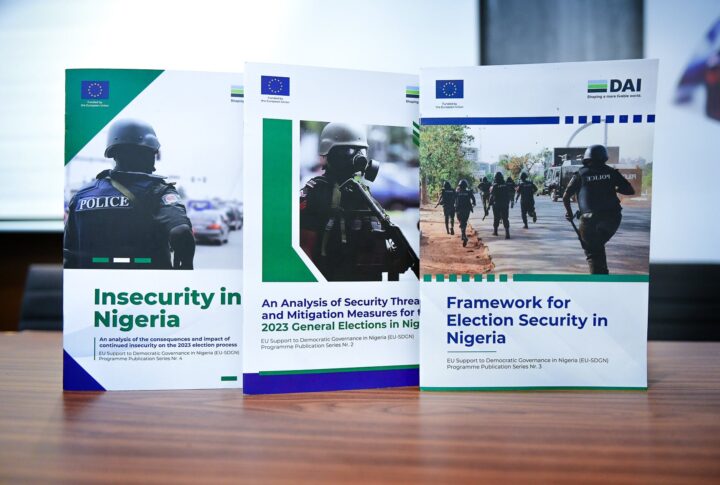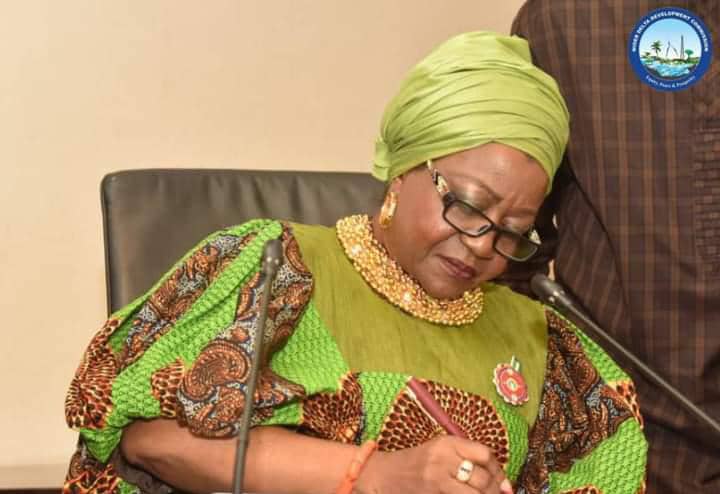An analysis by the European Union Support to Democratic Governance in Nigeria (EU-SDGN) has identified factors that could threaten the smooth conduct of elections in the country.
The report, released on Thursday, is a publication produced by the DAI, an international development company, with the support of the EU.
The report listed poor logistics management, possible malfunction of the BVAS, divisive disinformation, farmer-herder conflicts, displacement as a result of flooding, insecurity, among others, as issues that may affect the general election.
On farmer-herder conflicts, the report cited a reference to the recent comment by Samuel Ortom, governor of Benue, and said there is a need to prevent escalating clashes so as not to hinder the smooth conduct of the polls.
Advertisement
“Farmer-herder conflicts remain a serious threat. Centred around contestation over natural resources, land and water, they have been observed recorded in 22 of Nigeria’s 36 states,” the report reads.
“Some of the states with the most significant and recurrent violence include Benue, Plateau, Taraba, Kaduna, Ondo, Oyo and Adamawa.
“These conflicts have implications for the elections beyond the displacement of citizens, particularly given how politicians have historically targeted ethnic support bases during campaigns.
Advertisement
“Disinformation is another significant enabler of election-related violence in Nigeria. Online propaganda is being curated both locally by ‘soldiers of the mouth’, but also by international experts and troll farms tasked with pushing a particular political agenda, as witnessed in several elections in the USA and other countries. Content on digital platforms is also being utilised to confuse voters and delegitimise the process.
“INEC is a particular target of disinformation campaigns with recent inaccurate information circulating about its involvement in the removal of names from certain ethnicities from the voter register as part of a wider effort to reduce voter turnout in opposition areas.
“It is important to recognise the overlap of this online content into offline spaces or into the conventional media where its reach expands further.
“Hate speech is a growing feature of the wider information landscape.”
Advertisement
The report also cited the need to ensure that the introduction of the bimodal voter accreditation system (BVAS), described as a “game changer”, is very effective.
“The use of the BVAS is compulsory as per the new electoral act of 2022, however, if the technology is deployed unevenly or if there are not enough trained technicians on BVAS to address malfunction then it can also fuel politicised narratives of disenfranchisement,” the report reads.
“The risk that purely technological failures in 2023 will generate accusations of electoral manipulation is real.
“In that regard, BVAS is also a security concern which if not properly deployed could undermine the stability and credibility of the elections.”
Advertisement
The report also listed recommendations to improve the electoral process, including the need to “establish a dashboard of key indicators on election risk management, engage with social media platforms and government agencies with the aim of developing a code of conduct for engagements between the platforms and INEC, recruit locals as adhoc electoral officials instead of non-residents of a state, encourage improved sharing of intelligence among security agencies”.
The full report is available here.
Advertisement






